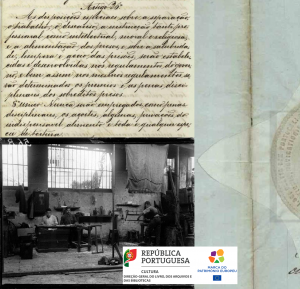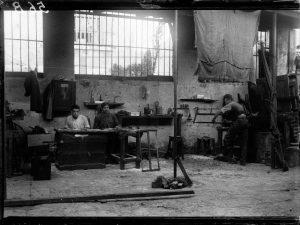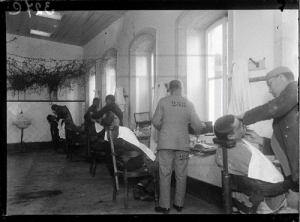International Human Rights Day | Recover Better – Stand Up for Human Rights
 The theme proposed by the UN for the celebration of this Human Rights Day (December 10) in 2020 focuses on the weaknesses to which the Covid 19 Pandemic exposed humanity. The United Nations calls to transform this threat into an opportunity to reaffirm the importance of human rights in the reconstruction of the world we desire, the need for global solidarity, and our interconnection and shared humanity.
The theme proposed by the UN for the celebration of this Human Rights Day (December 10) in 2020 focuses on the weaknesses to which the Covid 19 Pandemic exposed humanity. The United Nations calls to transform this threat into an opportunity to reaffirm the importance of human rights in the reconstruction of the world we desire, the need for global solidarity, and our interconnection and shared humanity.
An offender is still a citizen
In the context of the pandemic in which we live, prisoners are among the groups most weakened in their right to health by the high risks of contagion in prisons.
We can remember the beginning of the affirmation of the rights of prisoners.
From the 18th century onwards, with the victory of liberalism, a new Justice paradigm is implemented. a prisoner, although deprived of his freedom for a crime, remains a citizen with Human Dignity and rights.
“This needs to be completely wiped out!”
Those were the words spoken by King Pedro V, a reforming monarch, in 1860, on the occasion of his visit to the Prison of Oporto, a place of filthy and unhealthy masses of prisoners whose lives were often extinguished in the precariousness of ordinary cells before being judged in court for their crimes
The debate and concern about the need to make prisons a place of possible and desired regeneration of criminals has always been present.
The Charter of Law on the Abolition of the Death Penalty in Portugal was part of a Reform of Penal and Prisons (1867). It represents the new paradigm of justice that embraced the recognition of the human dignity of detained persons. The Prisons Reform, in its Article 26, determined the conditions of healthiness:
“Special provisions on separation, work, and rest, professional, intellectual, moral and religious instruction, and the feeding of prisoners, and on the health, cleanliness, and tidiness of prisons shall be established and developed in government regulations (…)”
Today this is determined by the Body of Principles for the Protection of All Persons under Any Form of Detention or Imprisonment, that was adopted by the United Nations General Assembly on 9 December 1988. Principle 1: All persons subject to any form of detention or imprisonment should be treated humanely and with respect for the inherent dignity of the human person

“Aspeto dos presos da cadeia do limoeiro, em trabalhos de sapateiro”, [“Limoeiro Prison: jail prisoner’s in shoemaking work”], ANTT, Empresa Pública do Jornal O Século, 01-10-1927

“A nova barbearia da penitenciária de Lisboa”, [“The new barbershop of the Lisbon Penitentiary”], ANTT, Empresa Pública do Jornal O Século, 1928-02-24
